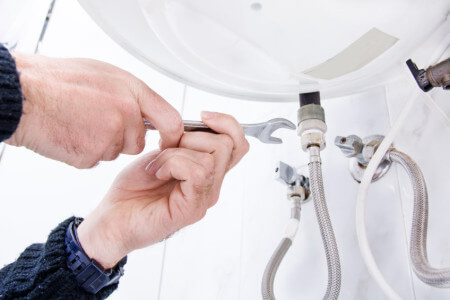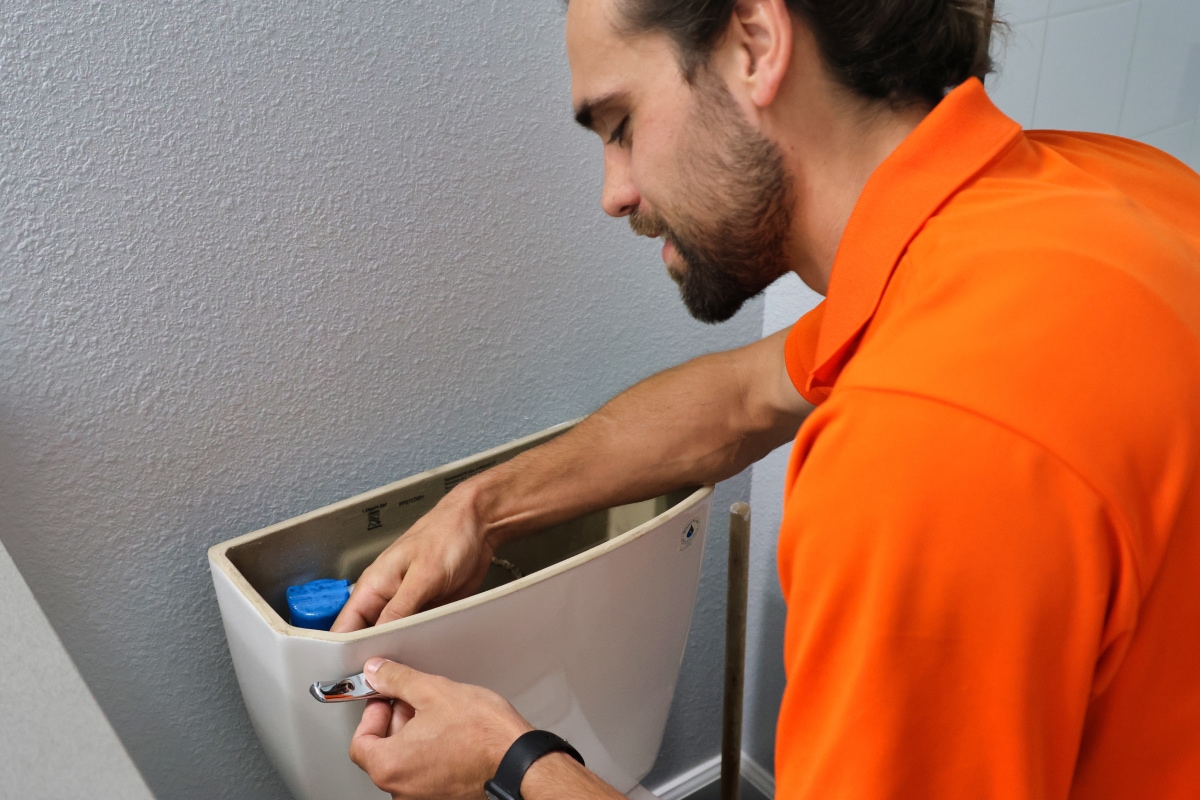Quick Plumbing Advice for Urgent Issues Until Professional Help Arrives
Quick Plumbing Advice for Urgent Issues Until Professional Help Arrives
Blog Article
How do you feel about What to Do During a Plumbing Emergency?

Plumbing emergency situations can strike at any moment, causing stress and anxiety and possible damages to your home. Whether it's a ruptured pipe, a stopped up drainpipe, or a leaking faucet, recognizing how to take care of the circumstance up until a professional plumbing arrives can conserve you from additional problems. This article supplies necessary emergency plumbing tips to aid you reduce damages and gain back control throughout a plumbing situation.
Switch off the Water
The very first step in any kind of pipes emergency is to turn off the supply of water. For localized issues, such as a leaking tap or bathroom, shut off the valve near the fixture. When it comes to a significant leak or burst pipe, locate your home's main water shut-off valve and turn it off instantly. Knowing the area of these shutoffs beforehand can save valuable time during an emergency.
Address Tiny Leakages with Short-lived Solutions
Tiny leakages can promptly come to be substantial troubles if left unattended. Use these temporary solutions till expert assistance arrives:
While these repairs aren't long-term, they can help reduce water loss and damages.
Unclog Drains Pipes Safely
A stopped up drain can be a discouraging and unpleasant concern. Below's just how to tackle it:
If these techniques do not function, prevent using too much force, as it may worsen the blockage.
Manage Overflowing Toilets
An overflowing commode can trigger instant mayhem. Here's what you should do:
Turn off Your Water Heater
In certain emergencies, such as a ruptured pipeline, it's a good idea to turn off your water heater. This prevents getting too hot or damages to the system when water stops flowing. Switch off the power supply to the hot water heater (electric or gas) and allow it cool to prevent prospective risks.
Temporarily Quit a Burst Pipe
A ruptured pipe can lead to substantial water damages in minutes. To reduce the issue:
Call a specialist plumbing technician immediately to deal with the trouble permanently.
Take Care Of Frozen Pipes Very Carefully
In cooler climates, icy pipes are a typical emergency. If you think a frozen pipeline:
Prevent Additional Damages
Taking quick activity to minimize damages can conserve you time and money over time. Here's how:
. Have an Emergency Pipes Set
Prepare a standard plumbing emergency set to take care of small issues successfully. Your set needs to include:
Having these tools on hand can make a significant difference in your ability to handle emergency situations.
Know When to Call an Expert.
While quick fixes can help briefly, certain plumbing concerns call for prompt specialist interest. Call a plumbing professional if:.
Quickly speaking to a specialist makes sure the problem is dealt with correctly and protects against additional problems.
Conclusion.
Pipes emergencies can be overwhelming, yet with the best knowledge and devices, you can handle the situation effectively till assistance gets here. By shutting off the supply of water, addressing tiny leaks, and making use of momentary fixes, you can decrease damages and keep your home safe. Bear in mind, these suggestions are temporary remedies; always get in touch with a certified plumbing professional to manage the root cause of the trouble. Preparation and fast thinking are your finest allies in any pipes emergency.
8 Helpful Tips for Managing Plumbing Emergencies at Home
If your plumbing system hasn’t failed once, wait for it because almost everyone has a story to tell. Sometimes, it could be simple emergencies such as a leaking pipe, a blocked cistern, or even a big burst pipe. In situations like this, you need to have some handy tips to save you some money and from possible damages.
Take care of minor issues early.
Sometimes, you could have avoided an emergency by taking proactive measures while it was still early. Some major plumbing emergencies can be a result of an ignored minor issue. We recommend that you have items like plumbing tapes and other related items. A plumbing tape can allow you to manage minor leaks before the plumber arrives.
Cut off the water supply.
This tip is essential in almost any type of leakage problem. For problems like minor leakages in the toilet or kitchen, turn off the supply that takes water to the affected pipes. If the leakage is a major pipe, you must shut off the supply valve to the entire building. This will help you avoid flooding your home and neighbors if you share a flat.
Know your plumbing system
Folks typically move into a new apartment without understanding the water supply around the building. This can prove disastrous if a water emergency arises and the plumber is far away. The previous tip will prove useless if you don’t practice this one. More importantly, know where your water shut-off valve is located – you’ll need that knowledge to prevent potential home floods.
Have some common handy tools
There are lots of plumbing emergencies that you can handle without hiring a plumber. That’s why you must keep some tools available always. Some tools that you can use to fix simple plumbing emergencies easily include plumbing tapes, screwdrivers, thread seal tapes, plungers, pliers, tape measures, and rubber gloves.
Insulate your pipes from cold
You’ll save yourself from many plumbing expenses if you protect your water pipes from the cold. This is because of the harmful effects that cold weather can have on your pipes. During winter, your pipes can burst from being overly expected to freezing temperatures. So, make sure insulators are there to keep the pipes working correctly.
Avoid practices that will clog your toilet.
Many people indulge in practices that can damage the plumbing system of the entire building. One of these is when they use their toilet to dispose-off garbage. They flush all kinds of things, such as paper towels, bandages, hairs, female sanitary products, etc., down the toilet. This will block your toilet in the long run, incurring unnecessary expenditures. Dump such waste in the trash instead.
Check your dials regularly.
Sometimes, there could be leakages in your home without noticing them in time. So, constantly monitor your water meter dial. If the dial is reading when there is nobody using water, this is an indicator that there is leaking. Check for leaks immediately. Call a plumber as soon as possible if you can’t find any.
https://www.constructionplacements.com/8-helpful-tips-for-managing-plumbing-emergencies-at-home/

We had been made aware of that article about What to Do During a Plumbing Emergency from a pal on another web property. If you please take the opportunity to share this post if you enjoyed reading it. Thank you so much for going through it.
Booking Page Report this page